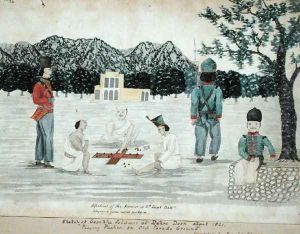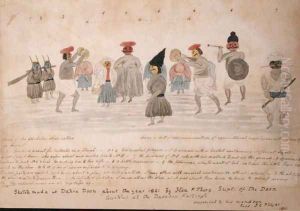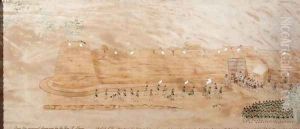The Hon. Frederick Shore Paintings
The Honorable Frederick John Shore was not primarily known as an artist but was a British civil servant in India who had several roles during his career, including working as an official in the East India Company. Born into a distinguished family in 1799, Shore was the son of John Shore, 1st Baron Teignmouth, who himself was a prominent figure, serving as the Governor-General of India from 1793 to 1797.
Shore's contributions to the arts are not well-documented in the same manner as those of professional artists of his time, which can make it challenging to provide a comprehensive biography focused on his artistic exploits. His professional life, however, was quite notable. He served in various capacities within the East India Company, which was the de facto ruler of much of India until the mid-19th century.
Frederick Shore's tenure in India would have given him exposure to the rich cultural and artistic heritage of the region. It was not uncommon for British officials of his stature and era to develop an interest in local art and culture, sometimes commissioning works or collecting artifacts. However, specific details of Shore's personal engagement with the arts, if any, are not prominently recorded in historical sources.
Shore is perhaps better remembered for his work related to the administration of British India. In particular, he is noted for his publication 'Notes on Indian Affairs', which is a two-volume work that provides significant insight into the British administration and various aspects of Indian society during that period. This work is often considered an important source for understanding the British colonial perspective on India.
Tragically, Shore's life was cut short when he died in 1837 at the age of 38. Though he may not be remembered as an artist, his life and work provide an interesting perspective on the British presence in India and the interactions between British officials and Indian culture during the early 19th century. If Shore did indeed engage in artistic pursuits, such activities would likely have been secondary to his official duties and personal interests in the governance and administration of British India.


